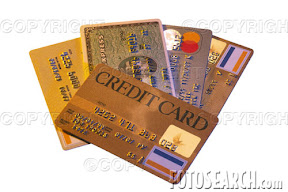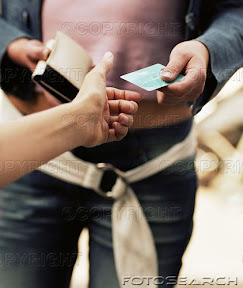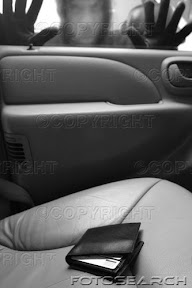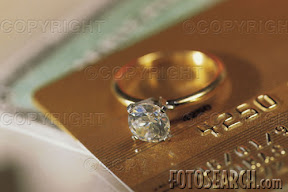Debit Card Frauds Crime Stoppers and the Ottawa Police Service are seeking your assistance in identifying the suspects involved in a series of ATM frauds in the Ottawa and Montreal areas.
Crime Stoppers and the Ottawa Police Service are seeking your assistance in identifying the suspects involved in a series of ATM frauds in the Ottawa and Montreal areas.
In the spring of 2006, a device that processes debit card pin numbers, was stolen from an Ottawa fast food restaurant and replaced with a tampered one, which had been modified to record the debit card confidential information. At least 200 clients had their debit card data and their PIN information recorded in the modified pin device. A restaurant employee is suspected as having collaborated with the culprits. The modified pin pad was subsequently recovered by the culprits and used to forge nearly 200 debit cards.
The cards were then given to “runners” who, in turn, made numerous fraudulent purchases and withdrawals in a short period of time before the banks froze the accounts in June 2006.
The result of this incident resulted in the loss of in excess of 50 thousand dollars to several Canadian banks.
The police investigation is trying to identify 5 of the “runners” involved in the Ottawa frauds:
1- Suspect # 1, 40-50 year old white male, 5’10” to 6’, salt and pepper hair, full beard
2- Suspect #2, female possibly of Asian descent, 5’4”, slim, bleached blond hair
3- Suspect #3, 20 to 30 year old white male, 6 feet, lean build, dimple on right side of face
4- Suspect #4, white male, lean muscular build, 5’10” to 6’, short hair, thin sideburns, wearing a distinctive necklace with a hanging cross
5- Suspect #5, tall slim male, possibly 6’3”, possibly of Somalian or middle-eastern descent.
Credit & Debit Card Fraud
THE STORY
(A London citizen explores his experience)
In September of 2003 my wife & I took a long walk in Springbank Park (London Ontario) because it was such a nice fall day. We parked in the most western parking lot on Commissioners just east of Boler Road. While out walking, thieves had gone into our locked car & removed some of our credit cards, identification & money. We didn't realize at first that we had been robbed because they hadn't broken anything (they probably used a "Slim Jim" tool to open the car) & they left my wife's purse & my wallet exactly where we had hidden them. When we arrived home, both of my answering machines had messages asking me to phone the TD Canada Trust VISA Loss Prevention Center. When I phoned they said their computer had flagged some unusual purchases on my VISA credit card & they wanted to know if I made them. I said no, checked my wallet & realized that I had been robbed. We quickly canceled our other stolen credit & debit cards, then reported the incident to the police. The police asked us to come in to the reporting center where they took the information, but gave us the distinct impression that they would not likely investigate because they don't have enough staff to cover all the crime that happens in London. That prompted me to do the preliminary investigation myself to increase the likelihood of investigation & conviction. I already knew that my credit & debit cards had been used at 5 stores & 1 bank, so 4 days later I was able to turn over my investigation to the police with pictures from one of the stores, exact times & locations where the cards were used so the police would know where to check on the surveillance tapes, manager's names & contact numbers & amounts of purchases. This did result in the police identifying & charging the thief about 7 weeks later. Please read below to find out some of the surprising things I learned about credit & debit card fraud, as well as suggestions I have for reducing it significantly.
WHAT I LEARNED ABOUT FRAUD
Doing this investigation revealed to me many things about fraud that I didn't previously know. I learned that the local police (and many former victims of fraud) are very frustrated with the amount of effort it takes to catch/convict criminals, that some police feel the courts only slap the criminals on the wrist with a light sentence when the occasional conviction does occur & that some police feel they are under funded & under staffed for the amount of crime they have to investigate. I learned that my local city councilors don't necessarily agree that the police are under funded & in any case city hall feels that throwing money at the problem by hiring lots more police wouldn't necessarily help reduce crime all that much. I learned that the city hasn't put up warning signs or surveillance cameras in high crime areas & that the police seldom conduct a sting operation in high crime areas. I learned from the police that locking your valuables in the trunk doesn't help much since most cars have a trunk release inside the car. I learned from having our car robbed that this was a several times a week occurrence in that parking lot because people walked so far away from their cars & had been a crime spot for years, with NOBODY doing anything significant about it. I learned that most major stores do have surveillance systems installed & that most stores would cooperate with the police & victims (only Canadian Tire on Wonderland Road was not cooperative). I learned that banks & credit card companies aren't very interested in prosecuting petty criminals for only $1400. because the cost to them in legal fees is greater than what they would likely recover from a young thief with no job. I learned that the banks & credit card companies don't seem all that concerned that they are sending a message to petty thieves that they WON'T likely be prosecuted & I learned that the banks & credit card companies are quite comfortable absorbing the losses as the cost of doing business. After all, the banks & credit cards companies charge merchants 1.5 - 3% on every purchase made with your credit card & about 18% interest if you don't pay your bill on time, so there is plenty of money to cover fraudulent use (but we all end up paying for it through our purchases). I learned that the banks aren't particularly cooperative with cardholders in revealing how & where my credit & debit cards were fraudulently use & actually lied to me twice by telling me that unsuccessful debit card use (TD Bank) or unsuccessful credit card use attempts after a card is canceled (Royal Bank), don't log the time & location (I later found that they do log the time & location but the head office fraud departments of these banks want to keep that info for themselves). In fact the banks tried to tell me that I was no longer the victim of crime because they absorbed my credit card losses. Perhaps this is why I also learned that the new Ontario Liberal government will be making a law that says banks must reveal what they know to the original victims of crime. I learned that both TD & Royal Banks use the security feature of phoning in to activate your replacement credit card, as an excuse to sell you insurance & that Royal Bank's activation only requires my name & birth date (information the thieves could have gathered from my wallet). I learned that the banks & credit card companies pay big time 'lip service" to what they are doing to prevent fraud, all the while ignoring most of the simple things that could be done to prevent fraud (see my suggestion list below). I learned (according to the banks) that many members of the public strongly resist attempts by the banks to implement any form of proof of personal identity. I learned that miniature chips on credit cards to reduce fraud are seven years away from being fully implemented in Canada, even though this technology is fully implemented in Briton, France & Russia. I learned that most other countries offer the users photograph on credit cards as fraud prevention, but almost no Canadian credit cards have photos (except American Express through Costco). I learned that VISA no longer requires merchants to verify that the users signature matches the one on the back of the card. I learned there are many simple, low cost, low tech, inexpensive methods of fraud prevention that are simply not implemented because nobody bothered, or nobody thought of it, or the credit card companies didn't want to upset their merchants or cardholders. That's why below I've listed suggestions for some easy things banks, citizens, police, courts, merchants & politicians can do to prevent credit & debit card fraud. What I learned is that fraud PREVENTION is far more cost effective than fraud CONVICTION, which is why we ALL have to start taking a proactive stand to implement whatever we can. Please read the suggestion lists below & lobby for these changes. If enough people simply insisted on having their photo on the credit card, banks would have to start offering it & credit card fraud would go down significantly. If fraud went down, so too would break-ins because a thief isn't going to bother breaking in if the credit & debit cards can't be used. The thief that broke in to our car didn't bother to take my wife's American Express card because it had her picture on it (through Costco), but the thief did take her Royal Bank VISA card because it didn't have a picture on it.
AN ANALOGY
In the 1960's NASA spent millions of dollars developing a ball point pen that astronauts could use in the zero gravity of space missions. Years later when there was some cooperation with the Russian space program, the Americans asked the Russians how they managed to overcome the fact that conventional ball point pens didn't work in space. The Russian's answer "we used a pencil". This nicely illustrates that large amounts of money can often solve a problem, but frequently simple, inexpensive, existing technology is just as effective. We don't need to wait until sophisticated technology arrives & is implemented (like miniature chips in credit cards), we can significantly reduce credit & debit card fraud right now by using some of the suggestions below.
WHAT CAN BANKS & CREDIT CARD COMPANIES DO TO PREVENT FRAUD?
PHOTO ON CREDIT CARDS: Encourage the cardholder's photograph on credit cards at no cost to the cardholder as a method so brick & mortar merchants can verify that the user is indeed the owner of the card (much better verification than a matching signature). Chargeback merchants on stolen cards when they don't match the photo. Perhaps give the cardholder a lower interest rate or bonus points if they elect to have their picture on the card. This simple feature alone has dramatically reduced credit card fraud in most other countries of the world, why not use it here? Pictures on cards have already proven fraud reduction results on drivers licenses, medical insurance cards, etc. As a point of interest, the thieves did not steal my wife's American Express/Costco credit card because it does have her picture on it, but they did steal her Royal Bank VISA because it didn't have a picture.
ASK FOR PHOTO ID
Until photos on credit cards are implemented, insist that store merchants ask to see a legal piece of photo identification when purchases are over a certain amount (say $100.). This is something that can be done right now with no additional cost. This simple method works well in other countries & it substitutes for those who don't have a photo on the credit card. Because of possible identity theft, banks & credit card companies need to remind merchants that under no circumstances are they allowed to record any personal information other than what is on the front of the credit card.
USE PIN NUMBERS FOR CREDIT CARDS
Extend the "Verify By VISA" password (pin number) to also be used for brick & mortar store purchases. This technology is already in place for internet purchases & there is no reason why it can't be extended for use in stores. If passwords (like pin numbers for debit cards) were used for all credit card purchases, the thief couldn't use the credit card without the password.
MATCH THE SIGNATURE
Reinstate the policy of having the cardholder match the signature on the back of the credit card & charge back or penalize merchants who refuse to follow instructions to match signatures on stolen cards or those merchants who don't hold on to stolen cards when requested to do so.
ASSIST PROSECUTIONS
Be willing to show up in court & help prosecute criminals for the fraudulent use of credit & debit cards regardless of the value stolen, instead of weighing whether the cost of prosecution is lower than the amount likely to be recovered (very shortsighted). VISA & banks are sending a very clear signal to thieves that they aren't likely to be prosecuted (banks won't usually prosecute for $1400.). Wal-Mart will prosecute any theft, even for a bottle of nail polish.
REVEAL ALL INFORMATION TO VICTIMS
Be more forthcoming to victims (cardholders) with information about how their stolen cards were used, before the government makes you do this. Police departments often claim they don't have the manpower to investigate credit card fraud, but police will be more likely to pursue the case if the cardholder collects & turns over information which simplifies the police investigation.
MAKE FAILED ATTEMPT INFORMATION AVAILABLE
Make sure that failed attempts to use credit & debit cards are recorded with a time & location stamp & make this information easily available to cardholders, bank employees & police so they know where on the surveillance tape to look for pictures. Don't make them wait for a week to get this information like Royal VISA did to me.
USE THE PASSWORD FOR REPLACEMENT CREDIT CARD ACTIVATION
When activating a replacement credit card, make sure that the customer is forced to identify themselves with their password or by phoning in from their home phone number, so thieves can't steal the replacement card from the mailbox, activate the card with the name & birth date that was in the wallet/purse they stole & go on a second spending spree (Royal Bank VISA doesn't ask for passwords or check the number on call display when activating a replacement card). Don't insult the cardholder further at time of replacement card activation by trying to sell them insurance.
EDUCATE THE PUBLIC
The banks should be trying to educate the public through advertising about how the public can help to reduce fraud, in an effort to gain the public's cooperation.
WHAT CAN THE PUBLIC DO TO PREVENT FRAUD?
ASK FOR YOUR PHOTO ON CREDIT CARDS
Lobby & request that your bank put your photograph on your credit card. Matching a signature on the back of your card is too easy for a criminal. A store cashier can easily tell from a photograph on your credit card whether or not the card belongs to you. If your bank won't put your picture on your credit card, then go somewhere else that will. Costco puts your picture on American Express credit cards when applied for through Costco. Citibank will put your picture on MasterCard if you supply the picture.
COOPERATE BY SHOWING YOUR ID
Don't be so resistant when a bank teller wants to see appropriate ID, or a store merchant wants to see ID for debit or credit card purchases. They are trying to reduce fraud, which ultimately YOU pay for. Always carry legal photo ID with you. Because of possible identity theft, under no circumstances should you allow merchants to record any personal information other than what is on the front of the credit or debit card (some credit card companies prohibit recording of personal information by merchants).
DON'T USE SOMEBODY ELSE'S CARD
Only use your own credit or debit card. Never use your spouses credit card & fake their signature. Never allow somebody else to use your credit or debit card. Using a credit card that isn't yours, understandably raises a red flad with merchants, so don't give the cashier a hard time & try to tell him/her that it's ok because it is NOT ok.
SIGN UP TO THE "VERIFIED BY VISA" PROGRAM
Each bank that issues VISA now has a "Verified BY VISA" password (like a pin number) for internet purchases, so sign up, there's no cost to you for this extra protection.
USE A 128 BIT BROWSER FOR ON-LINE PURCHASES
If you purchase things on the internet with your credit card, use a browser with 128 bit cipher strength encryption, which scrambles your card number before it is sent. In Internet Explorer, menu under Help/About to see if you have this.
DON'T LEAVE VALUABLES IN THE CAR
Don't leave your wallet or purse in your car or trunk, take them with you.
PROVIDE DETAILS FOR THE POLICE
If you have the time, type up a comprehensive list for the police, of where, when & for how much your credit cards were fraudulently used (you can get this info from your credit card company fraud department usually within hours of card use), along with contact names & numbers where surveillance tapes can be retrieved. This preliminary information will increase the likelihood that your case will get investigated by the police.
WHAT CAN STORE MERCHANTS DO TO PREVENT FRAUD?
MATCH SIGNATURES
Check to see if the signature on the back of the credit card matches, even if you aren't required to do so by the credit card company.
ASK FOR PHOTO ID
For large value, suspicious purchases, or when the signatures don't seem to match, ask to see photo ID when the customer is using a credit card. If the customer gets nervous or angry, chances are it's a stolen card, tell the customer you'll need manager approval. Because of possible identity theft, under no circumstances should merchants record any personal information other than what is on the front of the credit or debit card.
COOPERATE WITH VICTIM & POLICE
Cooperate with victims of credit or debit card fraud & police by giving them all the information they require.
INSTALL A SURVEILLANCE SYSTEM
Make sure you have a surveillance system installed & that cameras are zoomed in enough & lighting is adequate enough to make out the faces. A wide angle silhouetted picture doesn't help much.
KEEP TAPES FOR AT LEAST TWO MONTHS
Keep your surveillance tapes on file for at least 2 months to give police & credit card fraud departments enough time to contact you.
DON'T RETURN CARD
If you're asked via your credit card machine to keep a stolen card & phone police, then do that. Don't return the credit card to the customer until the machine verifies that it's valid for use.
BE SUSPICIOUS
Be suspicious of large value purchases for easy to fence items, by young people. Make sure the signature matches exactly & if it doesn't ask for photo ID. Call your manager or the security department if you're not sure & need confirmation. At this point the thief will usually take off out of the store without the card or merchandise.
VIEW SHIELDS FOR DEBIT MACHINES
For debit card users install a view shield on both sides of the machine so thieves can't easily watch the customer enter their pin number.
WHAT CAN INTERNET MERCHANTS DO TO PREVENT FRAUD?
VERIFIED BY VISA
Subscribe to the merchant "Verified By VISA" program, which is basically a password (much like a pin number) for purchases made over the internet. This will give your customers a reason to feel secure about purchases made over the internet by credit cards. The biggest reason given by customers for not purchasing over the internet is a feeling of insecurity.
WHAT CAN THE POLICE DO TO PREVENT FRAUD?
STING OPERATIONS
Do routine sting operations in high crime areas.
ENSURE STAFFING IS ON PAR WITH OTHER FORCES
Ensure that your police force is funded about on par with other similar police forces & if they are, then stop complaining about not having enough funding & staff. If funding & manpower is not nearly on par with other police forces, then lobby hard to make it on par & don't apologize for lobbying.
PUBLISH CRIMINAL'S PICTURES
Develop a relationship with the local news paper & once a week publish all the pictures of criminals from surveillance systems where you figure it would take too much effort or cost to get a conviction, or where you simply don't recognize the criminal. Banner titles could say "Do you recognize any of these probable thieves?" This can act as an embarrassment & deterrent to criminals because they want a low profile. Seek legal advice on how best to display & label crime pictures without opening your police department to litigation, but don't listen to lawyers who are overly cautious, be an embolden leader in this fight. The criminals are bold, it's time the police fought back with some bold initiatives of their own.
MORE PREVENTION
Start putting more efforts into PREVENTION than CONVICTION. Prevention gives better bang for the buck.
WHAT CAN POLITICIANS DO TO PREVENT FRAUD?
ADEQUATE POLICING
Make sure the police in your area are as well funded & staffed as other districts on a per capita basis.
MATCH FUNDING FOR NEW POLICE
Have your city take advantage of policies by provincial governments that will match the cost of hiring new police if the city pays the other half. Make sure your city gets it's fair share.
SIGNS
Put up signs in high crime areas with warnings like "please take your valuables with you, this is a high crime area".
SURVEILLANCE CAMERAS
Install real & fake surveillance cameras in high crime areas to deter thieves.
POLICE THE COURTS
Ensure that the courts prosecute to the full extent of the laws you have written & that they do so in a timely manner without several delays.
MAKE ADEQUATE LAWS
Make sure that the laws you write are sufficient for the crime. Everybody gets discouraged when criminals get too light a sentence, or prosecution becomes overly burdensome.
WHAT CAN THE COURTS DO TO PREVENT FRAUD?
DON'T ISSUE LIGHT SENTENCES
Give heavier sentences to non violent fraud criminals as a determent & so the police don't get discouraged by seeing the criminal right back out on the street.
GET THE CASE OVER ASAP
Don't make it so easy for criminals to defer court cases to another date. Dragging out prosecution is discouraging to all involved, except the criminal who hopes to wear you down.
MAKE THE CRIMINAL RESPONSIBLE TO PAY BACK
Ensure that criminals are forced to pay back the money they stole, as well as reasonable legal costs of conviction, in addition to their jail sentencing.
Kamis, 30 Agustus 2007
you just read the article titled CREDIT CARD - PREVENT FRAUD YOURSELF - An Online Public Service Report if you feel this information is useful and want to bookmark or share please use the link https://maxyaquos.blogspot.com/2007/08/credit-card-prevent-fraud-yourself.html do not forget to go back to this blog to get more information about gadgets.
Tag :
CREDIT CARD - PREVENT FRAUD YOURSELF - An Online Public Service Report
By
untu
di
Agustus 30, 2007
CREDIT CARD - PREVENT FRAUD YOURSELF - An Online Public Service Report - this blog we have built a few years ago and already very many blog visitors Max Gadget who are satisfied with the information we convey and we say thanks for that, we will then improve the quality of information we convey to you, well according to what you are looking for we will now discuss first about CREDIT CARD - PREVENT FRAUD YOURSELF - An Online Public Service Report this information we framework from various trusted sources, please see:
Articles : CREDIT CARD - PREVENT FRAUD YOURSELF - An Online Public Service Report
full Link : CREDIT CARD - PREVENT FRAUD YOURSELF - An Online Public Service Report
Articles : CREDIT CARD - PREVENT FRAUD YOURSELF - An Online Public Service Report
full Link : CREDIT CARD - PREVENT FRAUD YOURSELF - An Online Public Service Report
You can also see our article on:
CREDIT CARD - PREVENT FRAUD YOURSELF - An Online Public Service Report
so much information CREDIT CARD - PREVENT FRAUD YOURSELF - An Online Public Service Report
hopefully the information CREDIT CARD - PREVENT FRAUD YOURSELF - An Online Public Service Report that we convey can make you satisfied because it can be useful to determine the gadget according to your needs.
you just read the article titled CREDIT CARD - PREVENT FRAUD YOURSELF - An Online Public Service Report if you feel this information is useful and want to bookmark or share please use the link https://maxyaquos.blogspot.com/2007/08/credit-card-prevent-fraud-yourself.html do not forget to go back to this blog to get more information about gadgets.
Tag :
Tags :
Langganan:
Posting Komentar (Atom)















0 komentar:
Posting Komentar